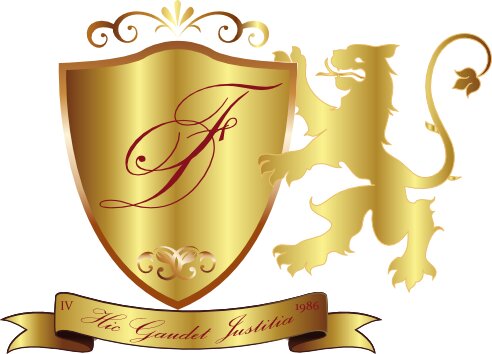Best Domestic Violence Lawyers in Turin
Share your needs with us, get contacted by law firms.
Free. Takes 2 min.
Free Guide to Hiring a Family Lawyer
List of the best lawyers in Turin, Italy
About Domestic Violence Law in Turin, Italy
Domestic violence is a serious issue affecting many individuals and families across Italy, including the city of Turin. Italian law defines domestic violence as any act of physical, psychological, sexual, or economic abuse occurring within a family or intimate relationship. The law seeks to protect victims, prosecute offenders, and offer resources to those affected. In Turin, as elsewhere in Italy, both authorities and support services work to prevent abuse, assist victims, and ensure perpetrators are held accountable.
Why You May Need a Lawyer
There are several situations in which seeking legal assistance is crucial if you are experiencing or accused of domestic violence in Turin:
- If you are a victim and need protection through restraining orders or safe housing.
- If you wish to press criminal charges against an abuser.
- If you have been falsely accused of domestic violence and need to defend your rights.
- If domestic violence has impacted child custody, visitation, or divorce proceedings.
- If you need help navigating complex legal paperwork or court appearances.
- If you require advice and representation during police investigations or criminal trials.
A qualified lawyer can guide you through the legal process, help collect evidence, advocate on your behalf, and ensure your legal rights are fully protected.
Local Laws Overview
Domestic violence in Turin falls under national Italian law, supplemented by local initiatives and enforcement. Key aspects include:
- “Codice Rosso” (Red Code) Law: This 2019 legislation speeds up legal procedures for domestic violence cases and strengthens protective measures for victims.
- Types of Abuse Covered: Physical, psychological, sexual, and economic violence are all recognized forms of domestic abuse.
- Urgent Protective Measures: Courts can issue emergency orders to remove alleged abusers from the home and restrict contact with victims.
- Mandatory Reporting: Medical professionals and some other categories of workers are required to report suspected cases of domestic violence to authorities.
- Criminal Penalties: Offenders face imprisonment, fines, and other sanctions. Aggravating factors (such as violence against minors or pregnant women) lead to more serious penalties.
- Victim Support: Turin offers shelters, helplines, legal aid, and psychological support services for victims.
If you believe you are in immediate danger, you should contact the emergency services (Polizia di Stato, Carabinieri) right away by calling 112.
Frequently Asked Questions
What acts are considered domestic violence in Turin, Italy?
Domestic violence includes physical harm, threats, psychological abuse, sexual violence, and controlling or depriving someone financially or socially within a family or intimate context.
If I am a victim, how can I report domestic violence?
You can file a complaint (denuncia) at any police station (questura or carabinieri), call emergency services by dialing 112, or seek help from local anti-violence centers (“centri antiviolenza”).
Can I get legal protection immediately?
Yes, courts can promptly issue restraining orders and other protective measures to ensure your safety. If in immediate danger, police can intervene and offer temporary protection.
Is there support for male victims or members of the LGBTQ+ community?
Yes, support services are available for all victims, regardless of gender or sexual orientation. Specialized organizations exist to assist male and LGBTQ+ victims.
Will my complaint remain confidential?
Authorities and service providers are required to handle cases with discretion and confidentiality. Some information may need to be shared as part of legal proceedings.
Are there organizations in Turin that can help me?
Yes, Turin has various anti-violence centers, shelters, and legal aid services dedicated to helping victims of domestic violence.
What happens if I decide to withdraw my complaint?
In certain cases, particularly where public safety is at risk, police or prosecutors may proceed even if a victim withdraws their complaint, especially in severe cases.
How can domestic violence affect child custody?
Domestic violence is a serious factor in child custody decisions. Courts prioritize the safety and well-being of children, and may restrict an abusive parent’s access.
Can I access free legal assistance?
Victims who meet certain requirements (e.g., income level) may be entitled to free legal aid (“patrocinio a spese dello Stato”). Anti-violence centers can help you apply.
What should I do if I am accused of domestic violence?
If accused, it is important to remain calm, avoid contact with the accuser, and seek immediate legal representation to understand your rights and build your defense.
Additional Resources
If you or someone you know needs help, the following resources in Turin can provide support, advice, and legal assistance:
- National Anti-Violence Helpline 1522: Free, 24/7, with multilingual support.
- Centro Antiviolenza Torino (Anti-Violence Center Turin): Offers emergency accommodation, psychological support, and legal advice.
- Polizia di Stato and Carabinieri: Local police stations can take reports and provide protection.
- Comune di Torino (City Council): Provides information about local services, shelters, and programs for victims of violence.
- Legal Aid Society: Offers free or low-cost legal representation for eligible individuals.
- Hospitals and Health Services: Medical professionals can also connect victims with appropriate support services.
Next Steps
If you are experiencing domestic violence or facing related legal issues in Turin, here is how you can proceed:
- Ensure Immediate Safety: If you are in danger, leave the premises if possible and contact the police by dialing 112.
- Reach Out for Help: Contact an anti-violence center or the national helpline (1522) for support, shelter, and guidance.
- Document Evidence: Keep records of incidents, injuries, messages, and witness contacts if possible.
- Seek Medical Attention: Visit a hospital or clinic to have injuries documented by healthcare professionals.
- Consult a Lawyer: Contact a legal professional experienced in domestic violence cases for advice on your rights and possible actions.
- Consider Legal Action: Your lawyer can help you file complaints, request protective orders, and represent you in court if necessary.
Taking action can be daunting, but help is available. Local organizations, legal professionals, and the authorities are there to protect your rights and ensure justice is served.
Lawzana helps you find the best lawyers and law firms in Turin through a curated and pre-screened list of qualified legal professionals. Our platform offers rankings and detailed profiles of attorneys and law firms, allowing you to compare based on practice areas, including Domestic Violence, experience, and client feedback.
Each profile includes a description of the firm's areas of practice, client reviews, team members and partners, year of establishment, spoken languages, office locations, contact information, social media presence, and any published articles or resources. Most firms on our platform speak English and are experienced in both local and international legal matters.
Get a quote from top-rated law firms in Turin, Italy — quickly, securely, and without unnecessary hassle.
Disclaimer:
The information provided on this page is for general informational purposes only and does not constitute legal advice. While we strive to ensure the accuracy and relevance of the content, legal information may change over time, and interpretations of the law can vary. You should always consult with a qualified legal professional for advice specific to your situation.
We disclaim all liability for actions taken or not taken based on the content of this page. If you believe any information is incorrect or outdated, please contact us, and we will review and update it where appropriate.










